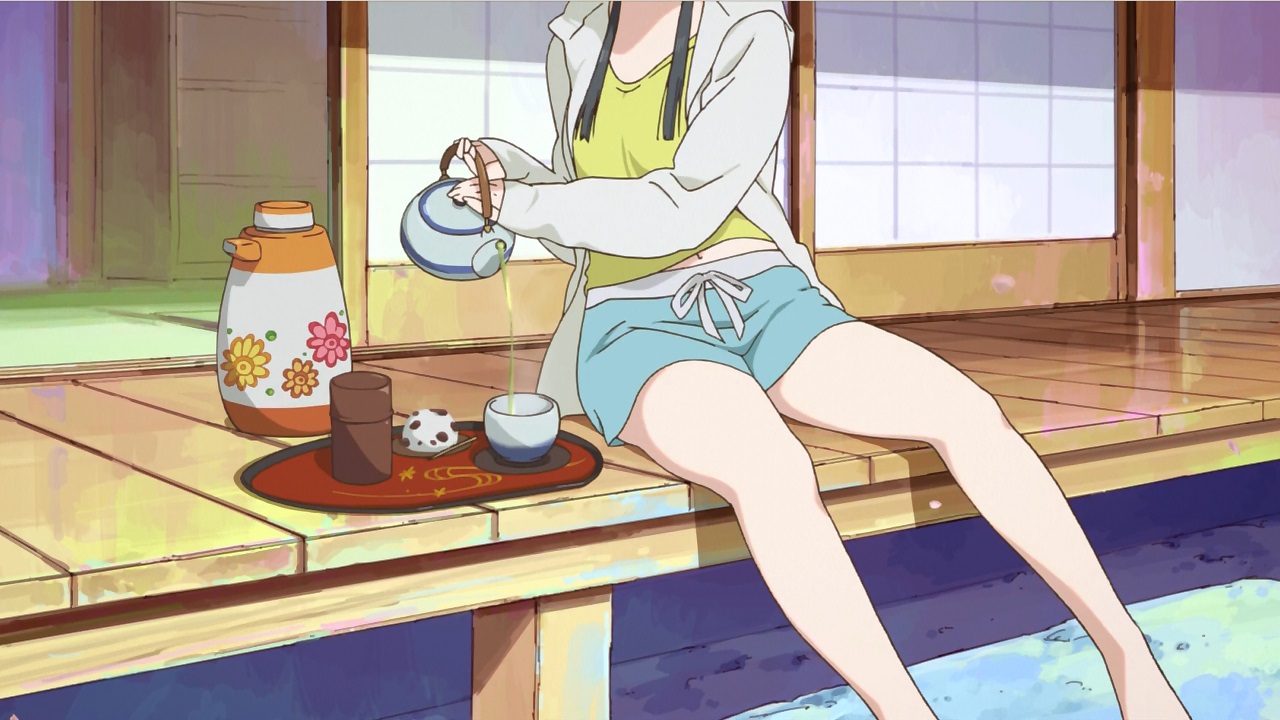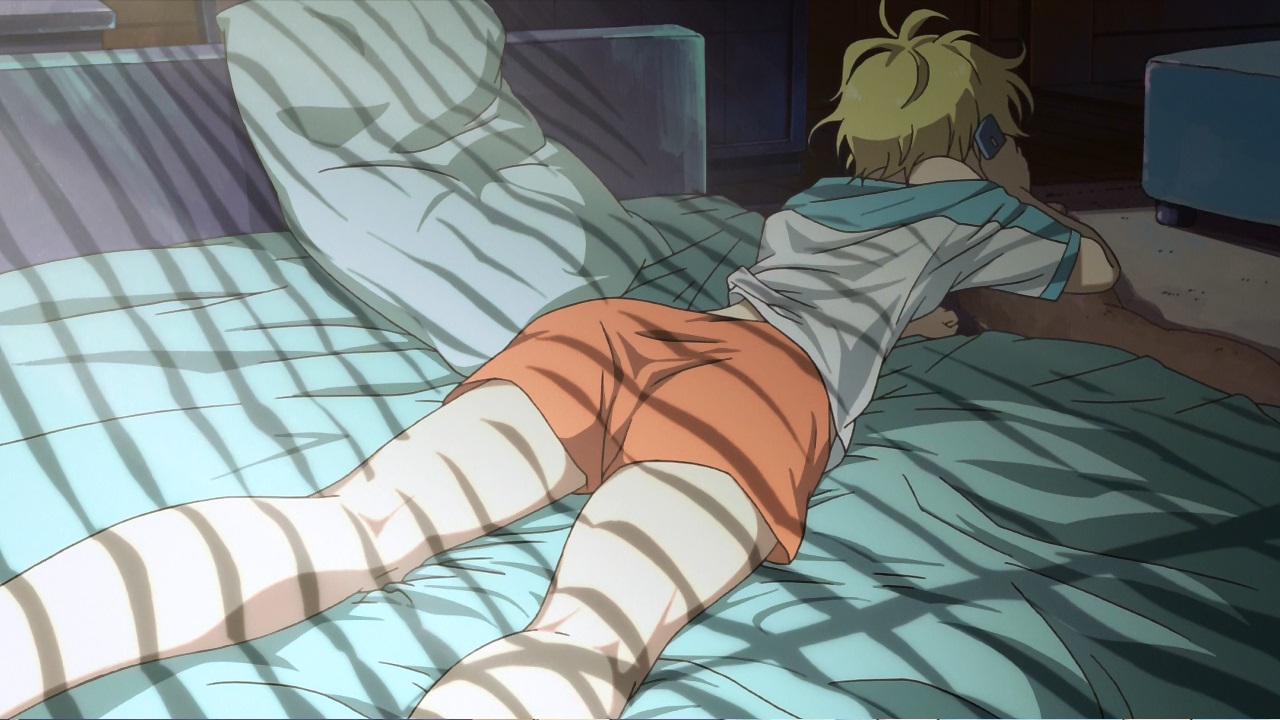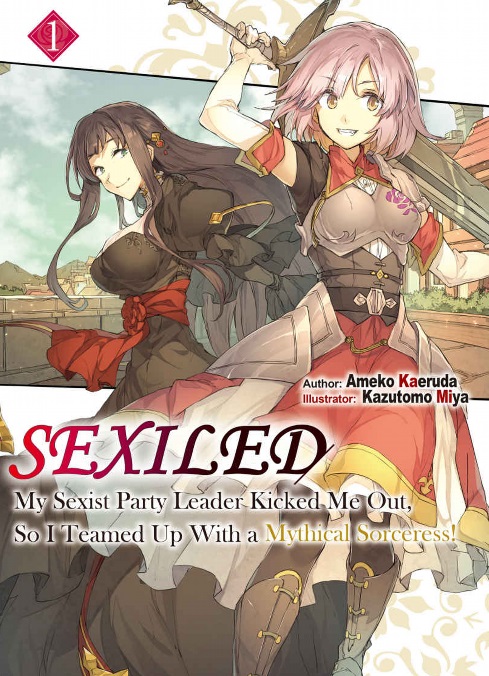Aiura: the horny slice of moe anime
After a hi-energy opening Aiura proper opens with a few lovely landscape shots, but it’s the first look at one of the protagonists that set the mood for the rest of the show:

Horny.
Broadcast in 2013, Aiura is a short length (5:30 minutes) anime series, based on a four panel gag manga, about three high school friends hanging out and having meaningless conversations with each other. Just another slice of moe series, but for its running time. Short as it is, it’s even shorter than its runtime suggests. It has a minute long opening, a minute and a half long ending, another ending halfway through the episode which eats up another twenty seconds or so. In all, there’s only two and a half minutes for the actual show. The quality of those two and a half minutes though… For what’s largely a throwaway anime, this is really well done. The backgrounds are brilliant, the character designs are cute and the animation is very well done.

Four panel gag mangas are somewhat difficult to translate to anime, lacking an ongoing plot as they do. When done on autopilot, you just get a series of setup/setup/punch line/reaction jokes where you can almost see the panel borders. You need something to punch it up to make it work in anime. What Aiura brings is horniness. The original manga is significantly less horny than the anime. There’s little room in a four panel, top to bottom, usually cramped gag strip like this for the sort of shot as shown above after all, even had the mangaka been interesting in doing so.
The horny lens through which the anime has adapted Aiura helps keep it interesting. This could all have been static shots of high school girls talking to each other. Instead, we get shots like this, with one of the girls taking off her wet sock, lovely animated. You can see the animator likes their thighs, but the camera doesn’t leer nor do you have any of the bankrupt boob jokes you’d usually see in slice of moe series. All those slightly horny shots keep you interested while the jokes are being told.
Maybe grow a thicker skin?
I’m sorry, but I just can’t see what’s so horrible about this statement that it got Sarah Dessen and a whole host of other big Name YA authors to flip their lid so hard:
During her junior year, Brooke Nelson said she fought hard against a Sarah Dessen book being selected.
“She’s fine for teen girls,” the 2017 Northern graduate said. “But definitely not up to the level of Common Read. So I became involved simply so I could stop them from ever choosing Sarah Dessen.”
Sarah Dessen, who apparantly has a google search alert for herself set up, reacted as follows (the tweet has of course been deleted since):
Authors are real people. We put our heart and soul into the stories we write often because it is literally how we survive in this world. I’m having a really hard time right now and this is just mean and cruel. I hope it made you feel good.
Which, you know, I understand. It is hard to see somebody dismiss your work as not college worthy so casually and if that makes you feel bad, you’re free to gripe about it to your friends. But she didn’t. She posted it on her twitter, taken out of context, for a quarter million or so followers. And then other YA authors with equally large followings did the same, some in the name of feminism. Because if something is feminist, it’s gangin up on a college student when you’re a bunch of succesful authors with a large, somewhat fanantical fanbase.
It was an old fashioned form of fisking that all those people , including N. K. Jemisin, which was …disappointing… engaged in. That first sentence “she’s fine for teen girls” was dissected as meaning that Brooke Nelson was dimsissive of teen girls, was unfairly biased to Dessen, a self hating woamn, etc. Insecurity and genuine concern about the place of YA fiction in wider literature led to take after take suggesting she was guilty of rampant misogeny and personally resposnible for all gender inequality everywhere. Earnest explainations of how teenage girls are always dismissed and not taken seriously were used as a cudgel to attack her with and nobody saw the irony of a group of mostly rich, mostly middle aged authors going after a college student for something she was involved with three years ago and had three sentences in a local paper talking about it?
Stop doing this. Stop overreacting to critics or readers disliking your work, stop ego surfing if you can’t handle negative reactions to your work. Stop pretending that somebody disliking you is an attack on all YA authors.
Grow up.
Talk to me in your own words!
Apparantly Hayami Saori recorded this scene for Inou Battle wa Nichijou-kei no Naka de in one take:
Taking place at it does in the seventh episode of a fairly typical otaku bait anime series, it’s a scathing takedown of the whole chuuni mindset it otherwise celebrates. Fandom as a whole runs the danger of thinking itself more special than ordinary people, to use jargon and obsession with mythologies to gatekeep and this rant was a nice takedown of how silly it all is.
Sexiled — Kaeruda Ameko

Sexiled: My Sexist Party Leader Kicked Me Out, So I Teamed Up With a Mythical Sorceress!
Kaeruda Ameko
Miya Kazutomo (illustrator)
Molly Lee (translator)
174 pages
published in 2019
Like most light novels, reading the full title is enough to get a sense of what Sexiled: My Sexist Party Leader Kicked Me Out, So I Teamed Up With a Mythical Sorceress! is about. Tanya Artemiciov is a talented mage and adventurer, who one day over breakfast is fired from her party by its leader, Ryan. She’s after all not getting any younger, must be thinking about getting married and having babies, right? So it would make sense for her to stop being an adventurer and do something more suited to women, like becoming a Healer, right? Needless to say, Tanya disagrees, storms off to the Western Wastelands to blow off some steam and as she attacks the innocent landscape, her magical attacks accidently wake up a mythical evil sorceress. Oops.